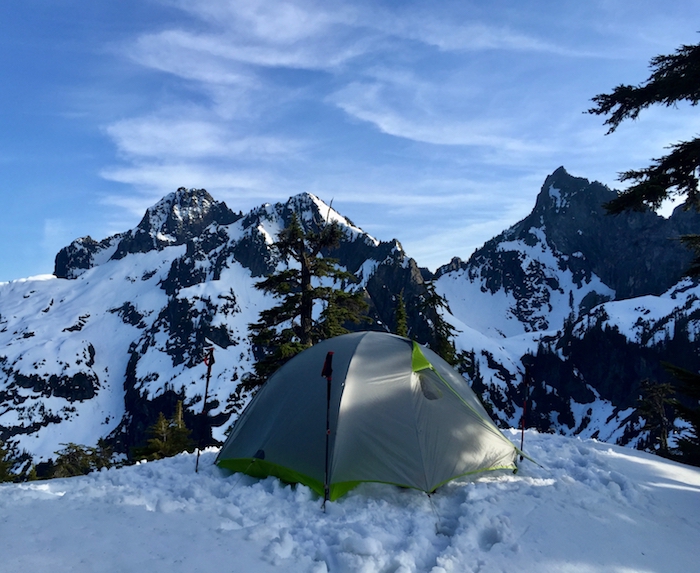November 1, 2017
Reaching a mountaintop still covered with snow in August, exploring glaciers at night or shredding fresh powder on your backcountry skis: extraordinary outdoor adventures can also mean incredibly cold temperatures. How can your food choices help you to keep warm out there? Here are the top 5 foods to keep warm in the backcountry:

Soups
A great way to warm up and rehydrate after a long day in the backcountry. Since most commercial dehydrated soups are low in calories and proteins, you should consider only using those for an appetizer and then have a proper meal. You can also make your own soup mixes, for example, vegetable and vermicelli soup.
Stews, chili and other “saucy” comfort foods
These dishes keep warm longer in your bowl while you eat than “dryer” meals and generally contain more calories and protein than soups. Add richness and calories to your stews by including fat sources such as ghee, oil, coconut milk or powdered cream. Try these 2 delicious recipes: chili-type stew and Indian lentil curry
Hot beverages
There is nothing like drinking a hot beverage on a cold day of adventuring. Carrying hot tea, hot chocolate, apple cider or even hot soup in a thermos on your winter adventures is worth the added weight. I also recommend starting your breakfast or dinner with a hot beverage. Here is a recipe for homemade hot chocolate that makes a nice dessert.
Oatmeal
Warm and quick to prepare, oatmeal is a great breakfast option on chilly mornings. It can also be served as dinner on those nights when cooking in the cold just doesn’t sound appealing! Make sure to add protein and fat sources to make your oatmeal a consistent meal. Get some inspiration from these oatmeal recipes: Choco-banana and Blueberry Pecan.
Boiling water filled Nalgene bottle in your sleeping bag
Ok, this one is not exactly a food option, but it helps to keep warm at night! When making dinner, bring to boil more water than necessary and fill a Nalgene bottle with it. After making sure that the cap is firmly closed, put the water bottle in your sleeping bag. You won’t regret it!
There is a ton of advice out there on how to keep warm by choosing the right gear or making sure you stay dry. And most of these tips can really make the difference between an enjoyable outdoor experience and a terrible one so I encourage you to do research on the topic before you set off.
Get prepared and hit the trails!
Gen Masson, MSc, RD, CD

